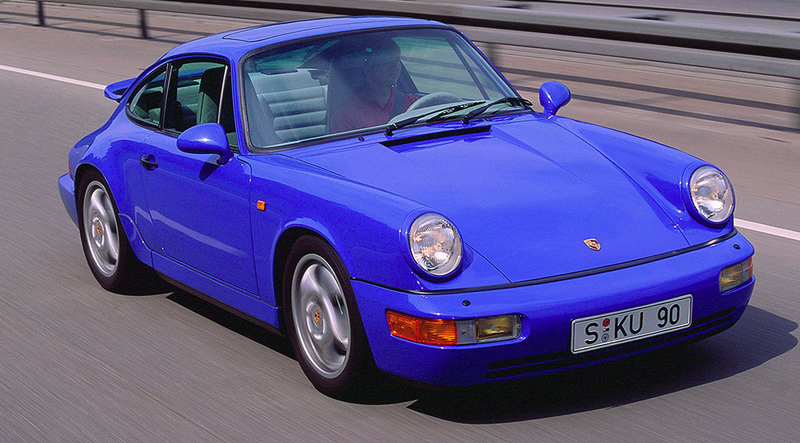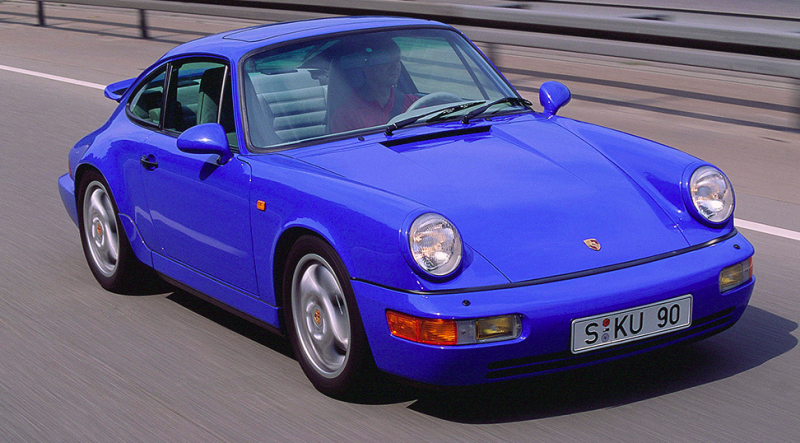
Bankers from Germany’s Südwestbank are recommending investments in vintage automobiles, and it’s not hard to understand why: the Porsche 911 has increased in value 683 percent over 13 years, according to Bloomberg, handily stomping the German Stock Index, DAX. Other 30+ year-old German cars also outperformed the German stock index.
So yeah, we’re not at peak air-cooled 911 yet. Those are still good “investments”, if you want to treat your car as one.
“Porsche 683% increase in value beats DAX, German bonds by far,” Bloomberg’s German headline reads. Investing in that vehicle 13 years ago would have been a smart move, and indeed—according to the news site—bankers are still recommending investments in “oldtimers,” with Bloomberg writing:
“For customers with more than 1 million euros in liquid assets, a classic car can be an attractive addition to their portfolio in terms of yield and value stability,” Jens Berner, vintage car expert at Suedwestbank AG’s asset management unit, said in an interview. “After the financial crisis, requests for alternative investments such as art, wine or classic cars had risen sharply.”
According to Bloomberg, Suedwestbank’s “OTX Classic Car Index” shows 30-year-old or older German cars gaining value faster than Germany’s main stock index, which Market Insider says represents “30 German companies with the highest market capitalization and the largest stock market turnover”:
To better compare vintage cars with other asset classes, the bank some time ago started the OTX Classic Car Index, comprised of vehicles that are at least 30 years old and come from manufacturers in southern Germany where Suedwestbank is based, such as Audi, BMW, Daimler and Porsche. From the start of 2005 to the beginning of 2018, the OTX quadrupled, easily beating the 204 percent gain for Germany’s main stock index DAX.
Advertisement
It’s worth noting that the index is made up of the 20 cars with the highest OTX value, which is obtained by “multiplying model prices provided by specialist magazine Motor Klassik with registration numbers from the Federal Motor Transport Authority.”
And of course, there are risks associated with investing in old German cars. Frank Wilke, the managing director of a “vintage car market observer” called Classic-Analytics recommends that buyers consult with an expert to avoid counterfeits. In addition, he cautions that investments in classic cars does come with a sacrifice to liquidity (unless you buy a 911):
“For some vehicles, there are only a few potential buyers, but for others, such as the Porsche 911, the market is relatively large,” he said.
Advertisement
He goes on, recommending buying up only expensive cars whose return is more likely to vastly outweigh small fees associated with car ownership:
He advises customers to invest only in vintage cars with a minimum value of 100,000 euros. At lower prices, the cost for expert reports, taxes, insurance, storage and maintenance are proportionally bigger drags on the return, he said. At most, a classic car should make up 10 percent to 15 percent of a portfolio.
So maybe we can expect rich people to start buying up classic cars, which would be fine by me if they drove them. But I bet they won’t, with Wilke saying:
“If you have a good stock, some say it’s best to put it into a safe for five years and see how it has developed,” said Rainer Dschuedow, managing director at classic car marketplace Pyritz Classics. “You should also handle a classic automobile this way. If your darling remained stable or did gain in value, you should be happy.”
Advertisement
Or you could drive these things instead, as the car gods intended. Human civilization will collapse eventually, so why not have some fun now?















